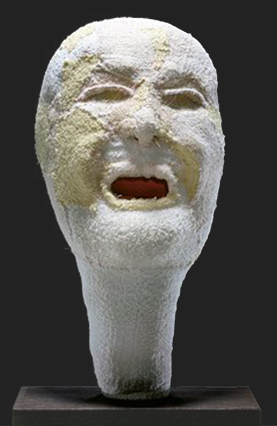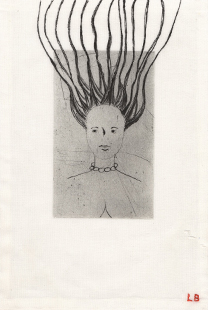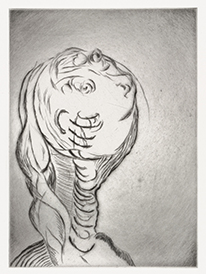





Faces & Portaits

Bosom Lady
1948

Insomnia
2000
A “drama of the self” is how Louise Bourgeois once described a work, perceiving her art overall as a form of self-portraiture. The characters in this drama occasionally included family members, most memorably her mother who appears as a spider. But, most often, it was her own emotions that Bourgeois transformed into “portraits.” She became the threatening Femme Couteau (Knife Woman), the stifled Femme Maison (Woman House), or the flirtatious Femme Volage (Fickle Woman). Bourgeois also showed herself in various configurations as The Bad Mother. In Bosom Lady, of 1948, she observed that three eggs in a bowl near a bird-woman are her “jewels”—her three children. But she also pointed out that this figure could easily “escape by flight.”
Bourgeois revealed her fears, anger, and despair most vividly in depictions of the human face. She called these “portraits of a mood,” and painful emotions are often communicated through contorted expressions or dizzying eyes. Very long hair—a pride of Bourgeois’s for most of her life—became a symbol of sexuality that could represent seduction, entanglement, or vulnerability. In the early 2000s, in a powerful expression of old age, Bourgeois created a series of fabric sculptures of heads that seem to cry out or grimace in pain. Then, in her last year, she issued Self Portrait, a series of 24 drypoints on fabric portraying various interpretations of her life from birth to adulthood. She also sewed these prints in a clock shape on a single piece of fabric, clearly evoking the passage of time.

Bosom Lady
1948

Insomnia
2000
“This is a self-portrait…the person looks around, pivoting constantly. Where am I today? Where will I be on the compass?”